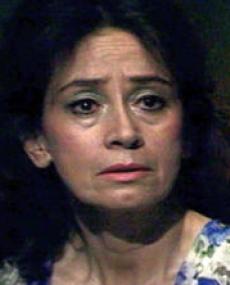
Actress Yvonne Bryceland, née Heilbuth, was born in Cape Town on 18 November 1925.
She worked as a newspaper librarian before her theatre debut in Stage Door in 1947. Her talents were first recognised through her association with the renowned Port Elizabeth playwright Athol Fugard.
Bryceland joined the Cape Performing Arts Board in 1964. She delivered inspired performances in Fugard's People Are Living There and Boesman and Lena, in which she made her European debut in London.
Fugard wrote many roles specifically for Bryceland and was also influenced by her. The New York Times called her an actress 'who reads the soul' of Fugard.
Bryceland's collaborations with Fugard were many and included Statements After an Arrest Under the Immorality Act and The Road to Mecca. The former premiered at The Space, a theatre in Cape Town that Bryceland founded in 1972 with her theatre photographer husband, Brian Astbury.
Other plays Bryceland featured in included Eugene O'Neill's Long Day's Journey into Night, Tennessee Williams' The Glass Menagerie and Bertolt Brecht's Mother Courage and Her Children.
Of his experience of working with Bryceland, Fugard, John Kani and Winston Ntshona, in Statements After an Arrest Under the Immorality Act in the late 1960s, actor Ben Kingsley said it was one of the best experiences of his career – 'a young actor's dream'.
In 1971, Bryceland performed outside South Africa for the first time in Boesman and Lena at the Royal Court Theatre in London.
Bryceland moved to London in 1978 to take the lead role in The Woman, a play by Edward Bond, at the Royal National Theatre. She spent eight years at the National, playing leading roles in Bertolt Brecht's Mother, Fugard's Road to Mecca and others. She relished the opportunity she had there to play a variety of parts at the same time. She once did 12 performances of four different productions in a single week.
Bryceland is probably most celebrated for her role as the unconventional sculptor Helen Martins in The Road to Mecca, which marked her American debut. Based on the true story of the elderly Martins, who created a wonderland of life-sized sculptures in the yard of her cottage in a remote Karoo village, Nieuw Bethesda, the play asserts the challenging role of the artist in society. Bryceland was awarded Britain's most prestigious theatre award, the Laurence Olivier Theatre Award, in 1985, for this portrayal. She repeated the role in the film version of the play, as she did with her role in Boesman and Lena.
Her acting skills earned her international recognition, including the 1984 Evening Standard award for Best Actress.
Among other made-for-television and feature films she acted in was Shawn Slovo's acclaimed A World Apart in 1988, which won a British Academy of Film and Television Arts Award.
Described as the first lady of South African theatre, Yvonne Bryceland was an actress who exuded a rare strength of portrayal, particularly of the anti-apartheid works of Athol Fugard. She was a committed South African artist who defied racial segregation by co-founding South Africa's first non-racial theatre.
Yvonne Bryceland died of cancer on 13 January 1992, at the age of 66 at the Royal Free Hospital in London.
Yvonne has three daughters.